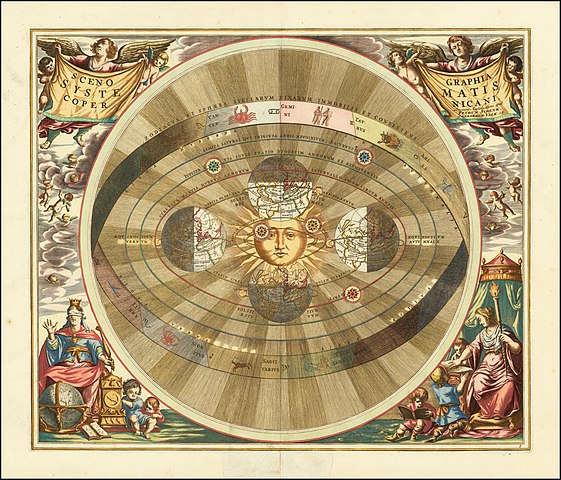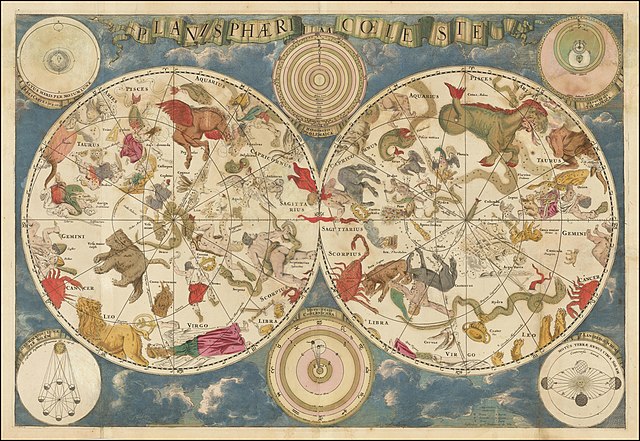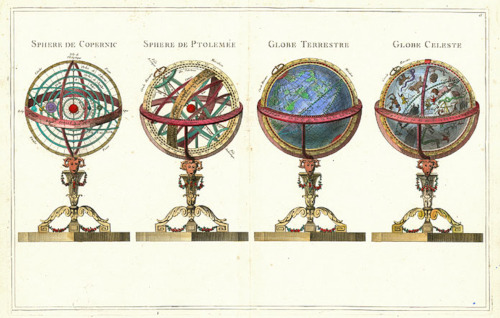What is Astrology
( Work in progress )
What is Astrology
Let’s start by looking at the word "Astrology." It comes from the Latin word astrologia, which originally came from the Greek word astrología. This Greek word is made up of two parts: astron, meaning "star," and lógos, which can mean many things, such as "word," "reason," "speech," or "account."
In ancient Greek philosophy, lógos had a deep meaning. It was used to describe the divine reason or order that shapes the universe. So when we put these words together, astrología is usually translated as "the study of the stars" or "an account of the stars."
However, astrology is about more than just looking at stars. It’s a way of understanding ourselves and the world through the stars. So perhaps a better way to think about it is as a "study through the stars."
So, what is Astrology?
"Astrology has no more useful function than this, to discover the inmost nature of a man and to bring it out into his consciousness, that he may fulfil it according to the law of light."
To truly understand what astrology is, the best approach is to look at its history. We need to explore where it came from, how it developed over time, and the role it has played in human life - both directly and indirectly. By doing this, we can understand its core ideas, beliefs, and the concepts behind it.

1661 Cellarius's chart illustrating a heliocentric model of the universe, as proposed by Nicolaus Copernicus
Astrology is not just a game or something to do for fun. For many people, including myself, it is a powerful tool. It offers a way to find meaning in life, especially when things seem confusing or without purpose. Astrology can help us learn more about who we are, where we come from, and even where we might be headed in the future.
One of the most valuable things astrology can do is reveal our character - our strengths, weaknesses, and natural tendencies. It can also give insights into our health, help us understand our relationships, and show how we interact with others. For example, it can be used to explore compatibility between two people. However, it’s important to remember that astrology doesn't control us. It shows possibilities and patterns, but it never takes away our free will. Each of us still makes our own choices.
"We're all nurtured by mother nature's cycles and seasons."
At its heart, astrology is about understanding life through nature. It is based on observing the natural rhythms and cycles around us. The world operates in cycles: day turns into night and back to day again - the cycle of a day. Seasons change from spring to summer, to autumn, to winter, and then back to spring - the cycle of a year.
These patterns don’t just happen outside of us - they happen within us too. From the tiniest atom to the vast universe, everything follows some kind of rhythm. Astrology helps us see how our lives are connected to these natural cycles and how we can find balance by understanding them.
Is Astrology a science?
"Astrology is a science in itself and contains an illuminating body of knowledge. It taught me many things and I am greatly indebted to it. Geophysical evidence reveals the power of the stars and the planets in relation to the terrestrial. In turn, astrology reinforces this power to some extent. This is why astrology is like a life-giving elixir to mankind."
This is a question that has been debated for a long time. Some people call astrology a "divine science", while others even refer to it as the "mother of all sciences". On the other hand, many modern scientists and scholars see astrology as a pseudoscience - something that looks like science but doesn't follow scientific methods or standards. So, which is it?
Before jumping to conclusions, let’s take a step back and think about something important: why do so many ancient beliefs in astrology seem to be confirmed again and again throughout history? If astrology were simply nonsense or just a product of someone's imagination, how is it that it appears in nearly every culture around the world? All major mythologies - from Greek to Egyptian to Indian - are closely connected to astrology in some way. That can’t be just a coincidence.
To better understand this debate, we need to look at the history of science itself. Before the scientific revolution in the 17th century, all branches of knowledge - including what we now call science - were part of what was known as natural philosophy. This was the study of nature through observation, logic, and reason, and it included everything from astronomy and medicine to mathematics and, yes, astrology.
But during the scientific revolution, thinkers began to focus more on physical, measurable evidence. They developed new tools and methods to study the material world. This shift gave birth to modern science, and astrology was pushed aside in favor of astronomy, which became the "scientific" study of space and celestial objects. Astrology, which looks more at the symbolic meanings of those objects and their influence on human life, no longer fit into the new scientific mold.
In this series, we will explore the main principles and ideas found in astrology. We’ll also compare them with modern scientific views and popular opinions, so you can decide for yourself what you believe.
This is a deep and sometimes complex topic. Some people might find it dry or confusing, but for others - like me - it’s incredibly fascinating. Whether you see astrology as a science, a spiritual tool, or simply a cultural tradition, there’s a lot to learn from exploring how it has shaped human thought throughout history.

